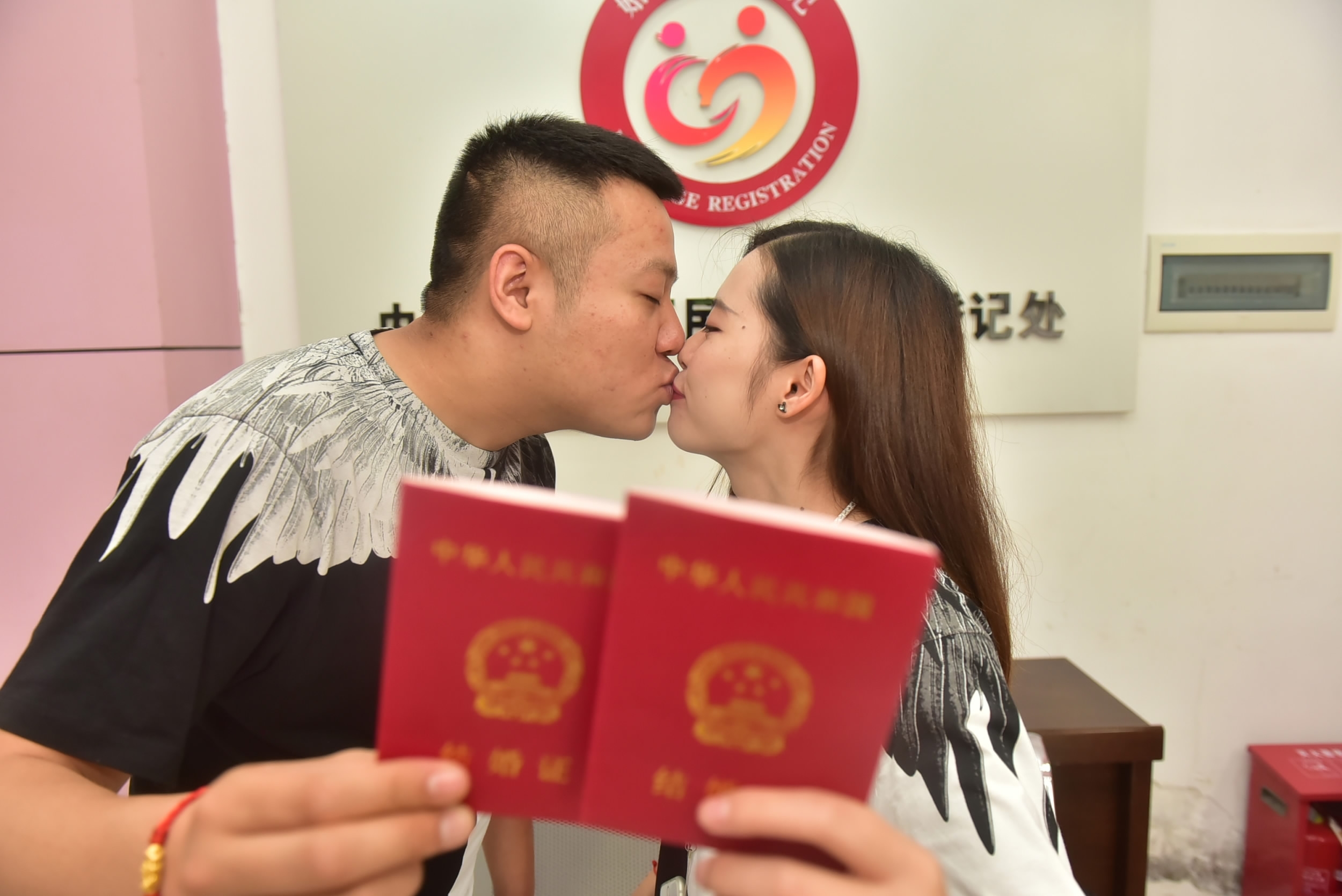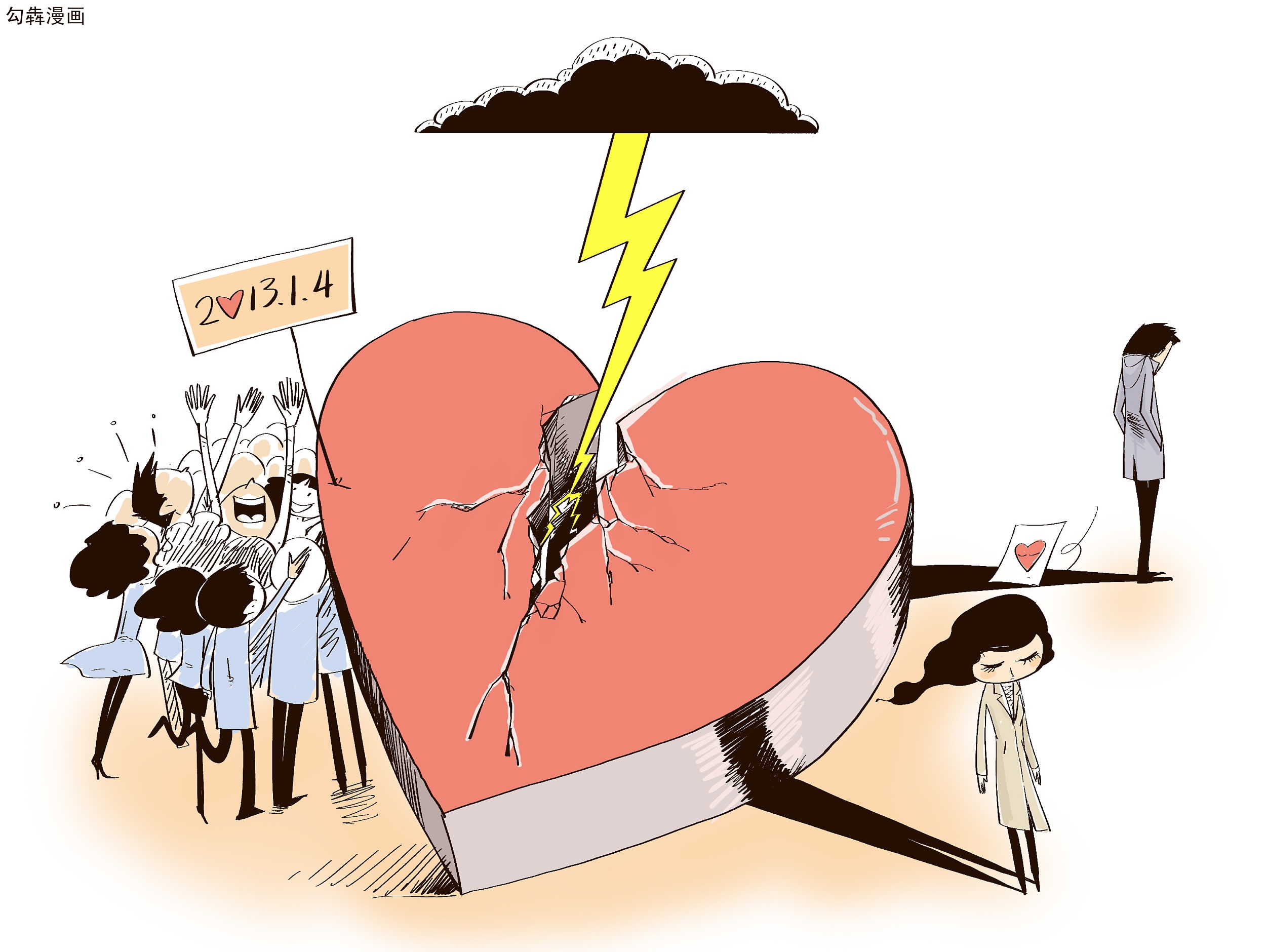Divorce on the rise among post-'90s generation in China

While marriage is out of reach for some people, the amount of divorces among China's post-'90s generation is on the rise.

Post-90s bride forms a 66-bicycle green team to marry her groom. /VCG Photo
With the uptrend, divorce has become a social concern, attracting more and more attention and discussion in China. According to China's Ministry of Civil Affairs, the number of divorced people has steadily increased over the past 14 years. In 2003, there were 1.33 million divorces in China, a stark difference from 4.85 million in 2016. And now, the post-'90s generation is adding to that rise.
Lora is just one divorcee out of China's millions. Born in 1992, she had chosen to tie the knot after becoming pregnant. But her marriage didn't end well, she opted to end it in early 2017 after discovering that her husband was cheating on her. She's now a single mom.
Understanding the post-'90s generation
Some refer to people born in the 1990s as the "irresponsible generation". There's a saying that people from this decade have "flash marriages" even before they figure out their spouse's name. The rush to the altar is considered the divorce culprit.
Young, not being economically independent and a low-level of education are some other reasons that have led to divorces among the post-'90s generation. Without the capacity to deal with complex issues on their own, marriages are doomed to fail.

A marriage without financial basis.
Divorces have also been on the rise among the young and wealthy. These affluent individuals are usually born to wealthy families and able to study overseas; this group is willing to put their own desires above traditional values and opinions of others. A higher education and living level mean they have more freedom in making their own decisions.

A couple tying the knot on May 20. /VCG Photo
Shift in traditional values
All this points to a shift in the purpose of getting married and the general attitudes towards tying the knot.
Before the modern period, marriage was simply put, seen as a way to reproduce. It was also a way to ensure property was inherited. Today, it's much more emotional. And in China nowadays, women have more of a voice, with emotional factors increasingly of value.
However, emotional volatility also brings about instability to marriages.
"Choosing to separate, mainly because our respect and perception to the marriage is out of balance, we don't care for each other anymore," said a divorced woman, born in the 1990s.

Flash divorce after flash marriage. /VCG Photo
The contemporary form of marriage has been illustrated in popular Chinese romantic comedy "Love is Not Blind": "In our time, we treat marriage like treating a broken fridge, we repair it again and again. But now young people like you, only want to change."
If marriage is based on "living with people who you have feelings for", what if the marriage is not full of happiness or "the beloved one" turns into an "excruciating bore", do we still need to insist on our wedding vows?
We still don’t have the answer for "what's the best for a marriage" and if a long-time marriage is what we pursue nowadays. There is one thing for sure: If times are changing fast, the younger generation will not be left behind.
